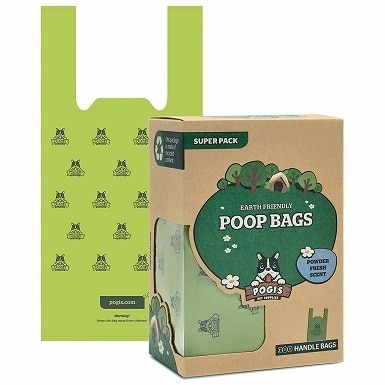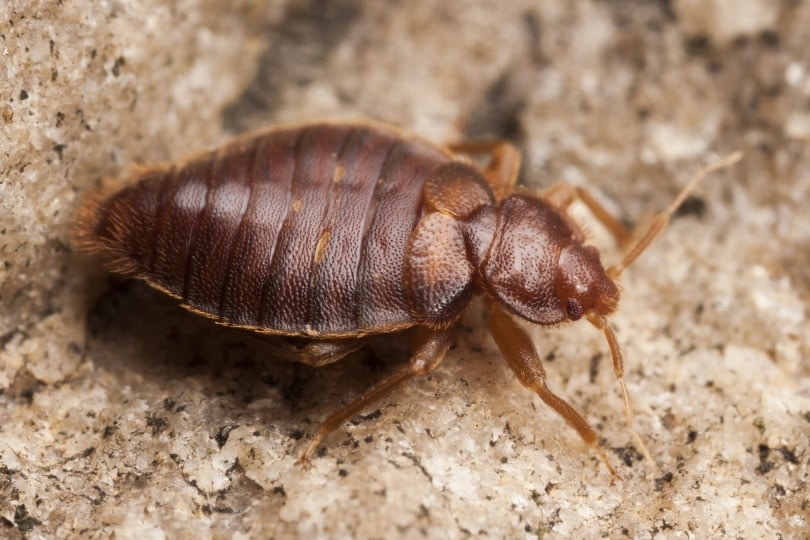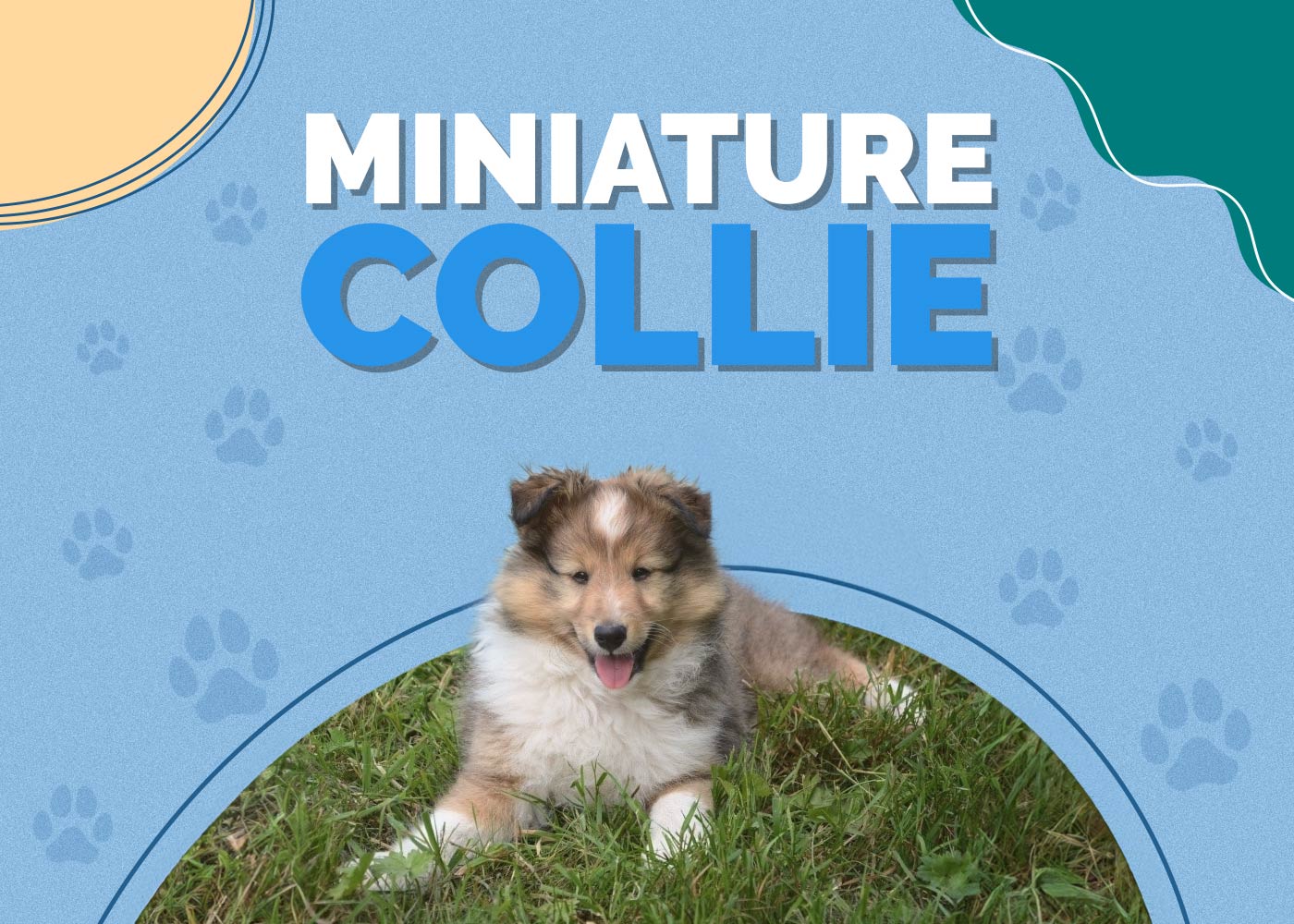How Long Does It Take Dog Poop to Decompose? Vet-Verified Timeline & Best Practices

Updated on
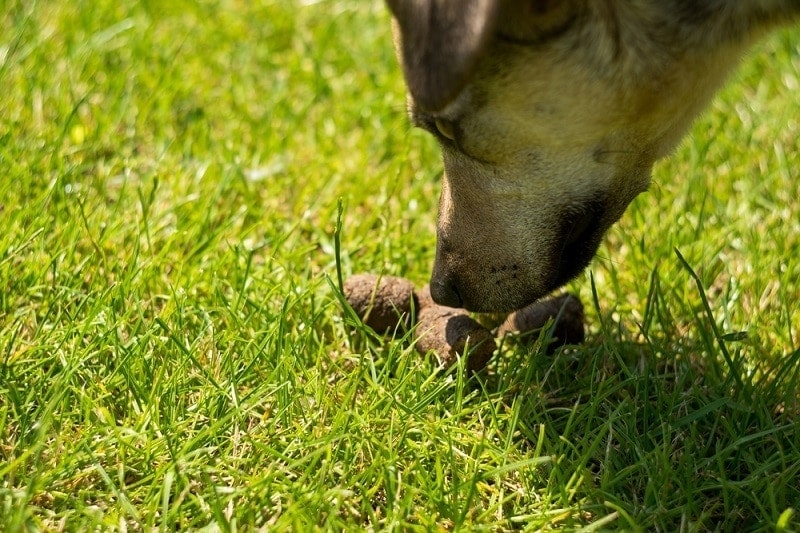
This must be a burning question that has to be answered if you’ve found your way to this article. Perhaps you’ve been wondering if leaving the occasional poop sitting in your backyard to decompose naturally is okay. Or maybe you want to know how long it actually takes for your dog’s poop to break down until it is completely gone (and hopefully provide your lawn with a little cheap and natural fertilizer).
Well, we’re here to tackle the question about poop’s decomposition timeline and whether or not it’s a good idea to just leave it outside and let nature do the rest. We’ll also get into the best methods for disposing of those stinky little gifts that come with dog ownership.
The answer can’t be precise since there are several factors that affect the speed at which dog poop decomposes. Generally speaking, dog feces can take many months or up to several years, according to some sources, to fully decompose. And no, your dog’s poop is a source of contamination and can’t be used to fertilize your lawn. Keep reading to learn more!
What Factors Affect Dog Poop Decomposition?
We need to have a brief look at some of the factors involved in the decomposition process. It’s not very exciting stuff, but a necessary part of the conversation all the same.
Diet
Your dog’s diet plays a big part in how fast the poop decomposes. Dogs have an omnivorous diet, which means they eat both plant and animal-based foods, but they primarily have a diet that is very high in protein.
Any dog with a high-protein diet will have poop that is harsher on the environment and will take longer to decompose.
Conversely, a dog that is fed a diet that is high in grains and plants will have poops that are gentler for the environment and will work faster to break down.
Climate
Where you are located and what season you’re in will play a large role in how the decomposition plays out. Depending on how chilly the weather is, it will take much longer for the dog poop to break down – even as long as several years!
Then, of course, the opposite is true in warmer climates. The hotter the weather and the more exposure to sunlight the feces get, the faster the poop will decompose. The average time for dog feces to decompose is approximately a year.
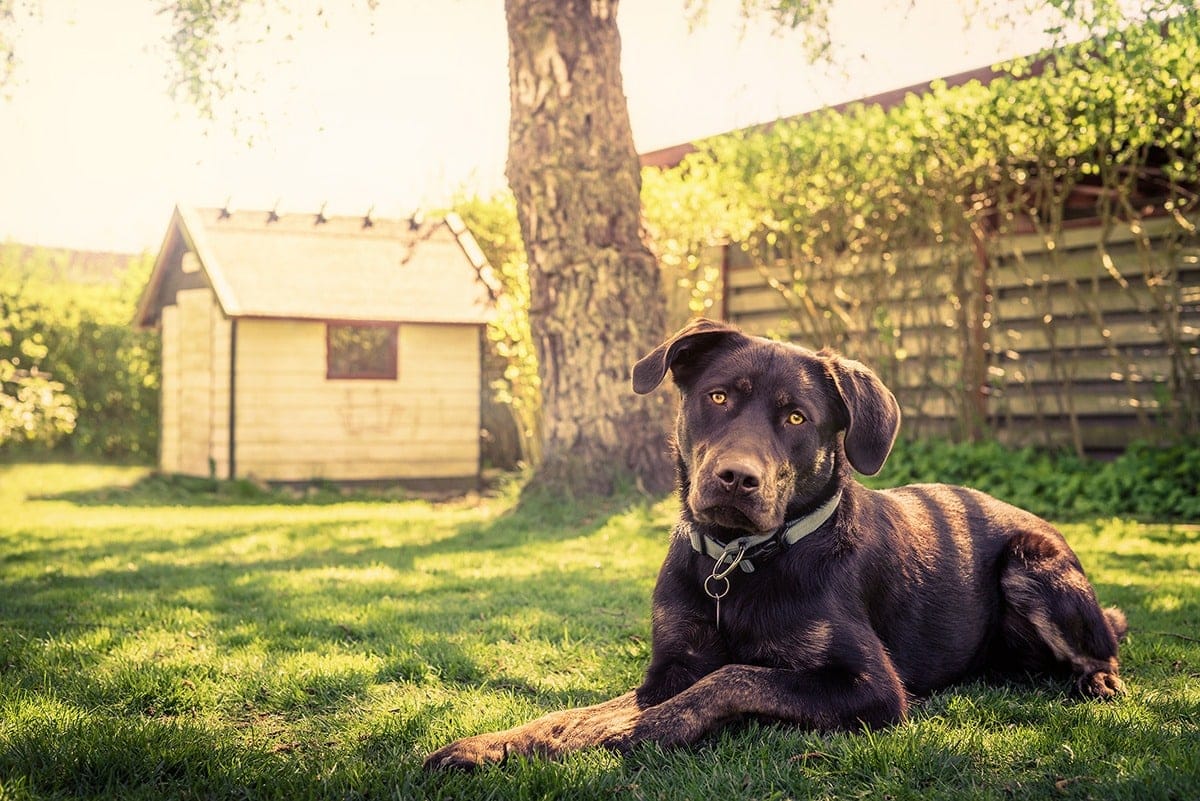
How Long Does Dog Poop Take to Decompose?
Now, let’s take a general look at how your dog’s poop is broken down.
First Weeks
By the end of the first week, the poop will be close to the same general appearance after it was first deposited. At this stage, however, it will probably carry pathogens that are dangerous to the environment and wildlife. Just one tiny gram of dog poop might contain 23 million coliform bacteria, such as Escherichia coli.
Gradually, the feces become a darker color and the first stages of decomposition begin. Depending on the climate and humidity, mold may appear. If the feces contain eggs, they will begin to produce parasitic larvae. However, once the larvae have developed and are dispersed into the environment, the eggs can lie dormant for months to years and can be easily picked up through soil that has been contaminated.
If at any time a child, for example, comes into contact with these eggs and puts their hand in their mouth, the parasite cycle continues and they may end up with a parasite in their intestines. Of course, this can also occur in animals, so it is essential to pick up the poop as soon as possible and be diligent in washing your hands after dealing with your dog poop.
Week 2
The poop will start to take on a darker color at this time and is in the early stages of decomposition. The bad bacteria (although not all bacteria are necessarily bad) will become more of a danger, and any animals (wildlife or other dogs) that come into either indirect or direct contact can become quite sick.
Week 3
By the third week, mold will start to become visible on the dog poop and will be found inside as well. This depends on the weather, of course. Mold thrives in moist conditions, of which feces has plenty of, but also if it’s particularly humid outside.
Week 4
By the fourth week, if the dog poop contains any eggs, this is when they will produce parasitic larvae. These eggs can lie dormant for months to years and can be easily picked up through soil that has been contaminated.
All it needs is hand-to-mouth contact and you end up with a parasite that will feed off intestines for months or years. This can happen to animals as well as people, so it’s essential to pick up the poop before 4 weeks and be diligent about washing your hands after dealing with dog poop.
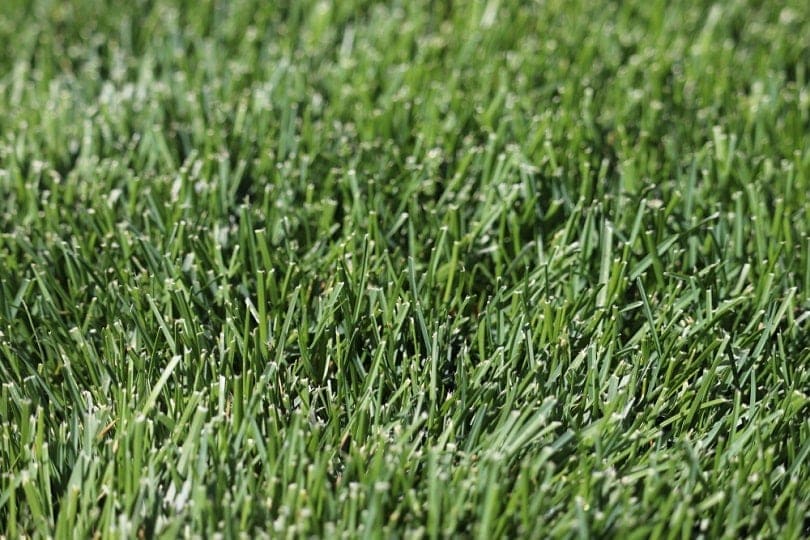
Following Months
The bacteria are still working away inside the dog poop, but at this point, it can easily be transported through the soil, groundwater, and the air. A rainstorm can carry the parasites around the neighborhood and attach to a garden or run off into the storm drain, which will then lead to our waterways.
As the process of decomposition progresses, the poop will have started decomposing into smaller pieces and will have shrunk down in size as the organisms take care of breaking them down. In addition, you will see that the grass surrounding the poop has dried out and stopped growing. This is known as “urine burn”, which results from the excess nitrogen found in the dog’s feces. The process continues slowly until the organic matter is completely broken down and the only evidence that it was there is usually the bald spot in the grass. While it seems to have vanished, a lot of the harmful bacteria are still lingering, so it’s important to remove poop in a timely manner.
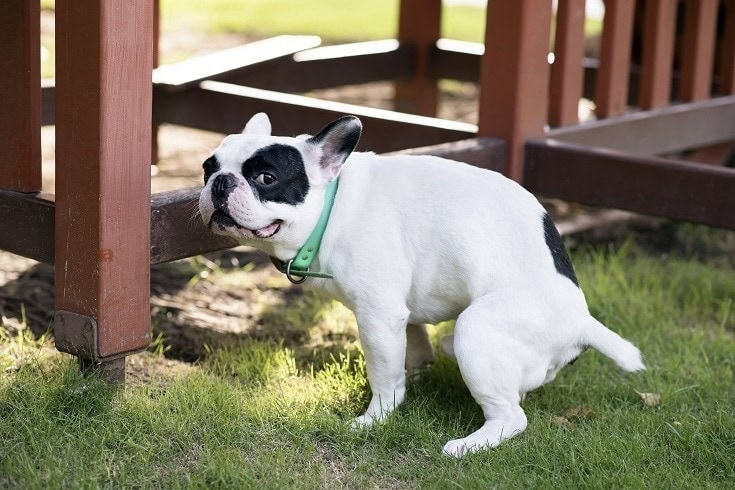
Should You Leave Dog Poop Be?
This is a firm no. Dog poop can be quite destructive to the environment and local wildlife and should always be picked up. This is, of course, notwithstanding the bylaws in most municipalities, which can run you a hefty fine or worse. You’re risking bacterial contamination of our streams, lakes, and rivers.
The nitrogen found in feces actually reduces the levels of oxygen, which can hurt wildlife and fish. And then there are the parasites we already discussed – hookworms, roundworms, tapeworms, whipworms, in addition to the harmful bacteria. It’s also really no fun to step in!
If you believe that the poop can act as a fertilizer for your lawn, now you know that it will actually kill your grass and make it an unsafe environment for your family.
The 6 Best Ways to Dispose of Dog Poop
We’ve established that you shouldn’t leave dog poop to mold and decompose, so what is the best method for disposing of it?
1. Biodegradable Poop Bags
First, we’ll look at poop bags and what the different options are. If you’re environmentally conscious, you’ll want to go with compostable vegetable-based poop bags, which can be disposed of safely.
When you decide upon a biodegradable dog poop bag, you should double-check the reviews and read up on the company. Some bags are misrepresented as being fully biodegradable but are not.
If you decide you want to save money and purchase regular plastic bags, just remember that it generates unnecessary plastic waste that could be avoided.
2. To Flush or Not to Flush
If you want to flush the poop down the toilet, you should do so without the bag – not even the fully compostable ones. Any bag put in the toilet will clog the plumbing or even the sewer. You should also be wary of any bag advertised as “flushable” since no bag is truly safe to put in the toilet. If you choose to use the toilet to dispose of the dog poop, always scoop it and flush it down directly.
3. Composting
Composting dog poop is tricky, as you can’t just drop it into any regular compost bin. Depending on your municipality’s laws, you might need to apply for a special compost for dog waste, as a certain amount of pathogen testing and temperature control should be a part of the process. You can establish a compost bin after checking the laws and doing some research, or you can also consider a worm bin. However, you can’t use the compost from dog waste in any garden.
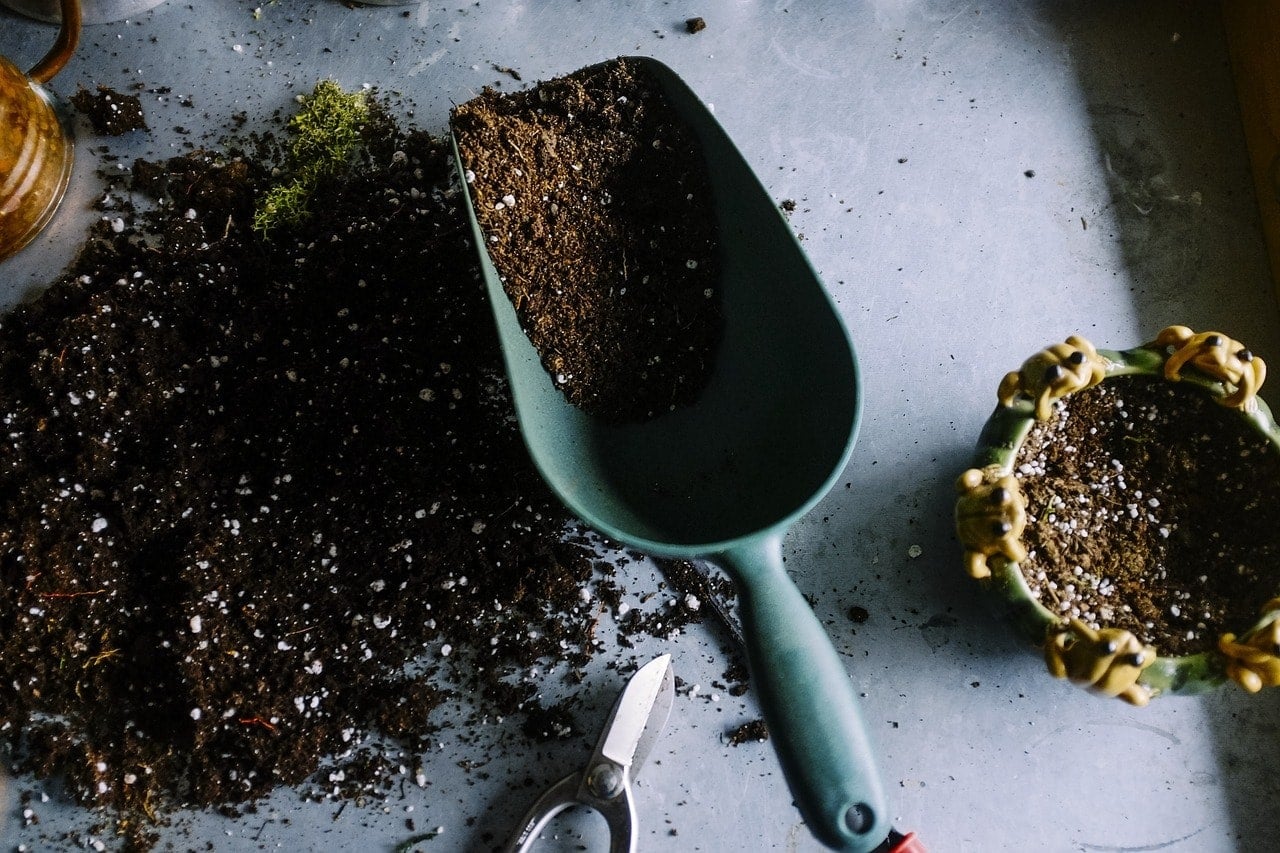
4. Recycling
Check with your town or city’s waste management departments, as many do encourage placing dog waste in compostable bags into the recycling bin.
5. Bury the Poop
If you don’t mind constantly digging holes in your backyard, you can opt to just bury the poop. The hole should be at least 6–8 inches deep, as you don’t want it dug up by your dog or any wildlife. Choose an area with organic soil, which will have organisms that will help break down the feces more quickly. Burying the droppings properly minimizes the spread of bacteria and parasites into the soil and therefore into the waters.
6. Dog Waste Specialists
Yet another option is to just let a professional dog waste collection organization deal with your dog poop. This can be particularly helpful if you live in a community of apartment or townhouse dwellers so you can share the costs. The poop is usually taken to the sewage treatment plant.
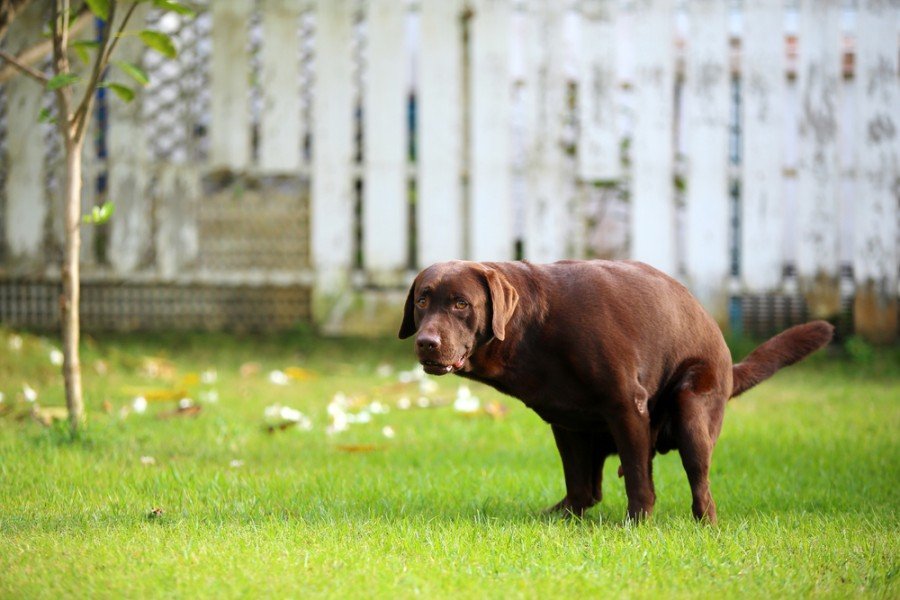
Summing Up How Long It Takes Dog Poop to Decompose
The long and the short of this article is that it takes up to a year, or several, for dog poop to decompose fully. It’s environmentally damaging to leave dog poop lying around, even if you’re in the middle of the woods. You don’t want to risk harming wildlife, someone else’s dog, or even yourself or your family. Proper collection and disposal of dog feces is essential to protect the environment and the health of people and other animals. Although it’s not a topic we like to talk about, it’s important to change the approach to handling your dog’s poop to benefit us all.
You now know far more about dog poop than the average person now. Not sure if you should brag about it, but if it changes how you deal with your dog poop and it’s for the better, then it was well worth it.
Featured Image Credit: Xtotha, Shutterstock





